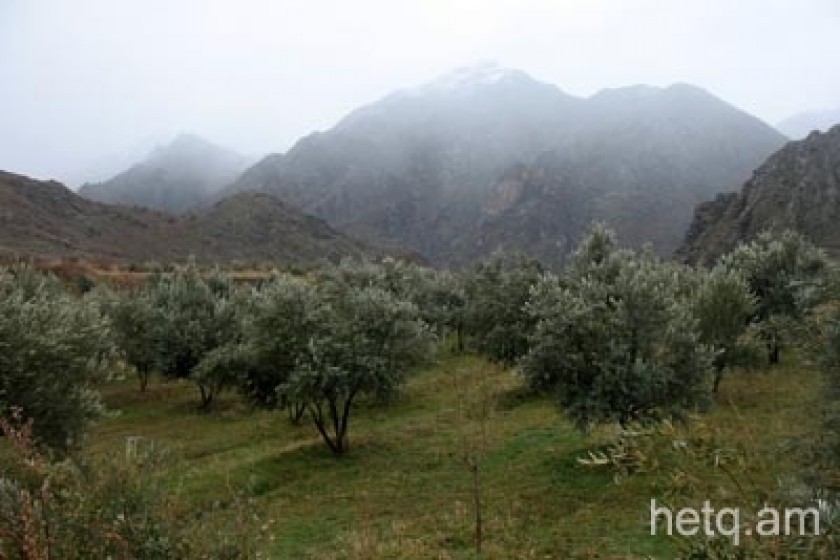
Karo's Olive Orchard: Hard Work Pays Off!
If you are wary of believing in miracles, I’d suggest you go visit Karo Karapetyan’s olive orchard in Meghri.
It has survived the particularly harsh winter months and is now blooming.
Like many others, Karo used to be engaged in the wholesale trade, never thinking that working the land could provide an adequate living wage.
Touching base with a number of suppliers of imported goods, Karo noticed that much of their product was hardly being sold, including olives.
He’d go around distributing thousands of cans of olives to this and that store and, by his reckoning, the retail price was being increased several times before reaching the consumer shelves.
Karo consulted with a number of specialists regarding the cultivation of olives in the Meghri region. That was 12 years ago. Today, he manages a six hectare olive orchard.
“It was really difficult at first. In 2002, most of the olive vines froze and died,” he says.
Karo also recalls asking then President Robert Kocharyan, who was visiting Meghri, for an easy term loan to get back on his feet. Karo says that the president promised to assist him but that he never heard back from Kocharyan.
To raise funds, Karo sold off a number of apartments he had amassed in Yerevan.
The plan paid off in the long run. Last year, Karo harvested his first olive crop – 5.5 tons in all.
“Our olives are of superior quality when compared to the canned stuff being imported. We had no problems selling the harvest,” Karo says.
The olive farmer says he and his brother will can the olives themselves and that they won’t need additional credit.
“Olives are a fickle crop. That’s why I decided to irrigate the orchard with clean potable water even though I could have used water from the Arax River. It was a huge expense.”
He told me that over time local residents had moved away from farming and gardening, even though the soil of Meghri is quite fertile.
“People started to work in the mines and at the customs house on the border. They neglected the land under their feet,” Karo notes.
He says that if the government continues to pay attention to rural agriculture, the land can not only sufficiently feed the populace but can provide a really decent way of life.
 Videos
Videos Photos
Photos




Comments (7)
Write a comment